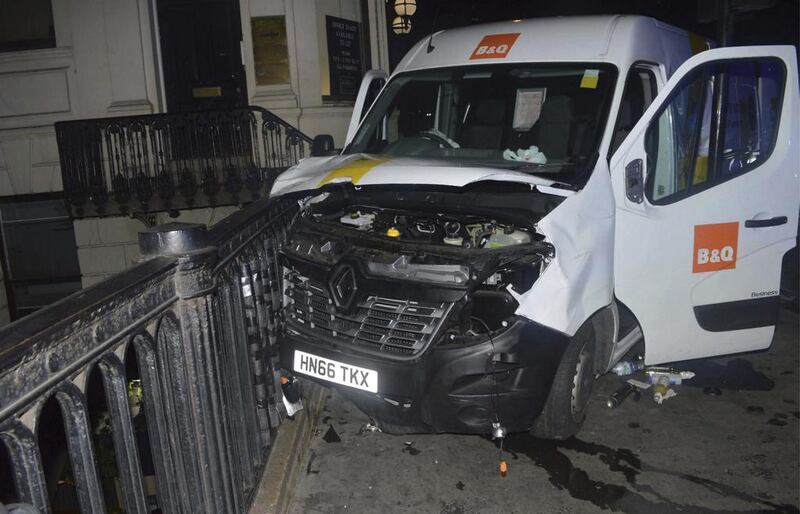ISIL recruiters tried to recruit UK-based supporters through social media to carry out an attack on London Bridge a year before extremists killed eight people using knives and a van as a deadly weapon, according to a two-year investigation.
The UK’s security services were made aware from 2015 that undercover journalists had been in touch with Syrian-based recruiters who urged them to strike at the “heart of the crusader army,” according to the BBC’s Inside Out investigation.
The recruiters first named London Bridge as a target in the summer of 2016 during a series of conversations with a researcher that they believed to be a 17-year-old still living with his parents.
The group had been using Facebook and Twitter in July 2016 to recruit British Muslims before continuing more detailed discussions on WhatsApp, Telegram and Surespot about attacking specific locations in London.
“The power and information is all with the terrorists and extremists who have at their disposal now encrypted apps that allow them to talk amongst each other around the world very little coverage by the intelligence agencies whatsoever,” said Richard Walton, the former head of counter-terrorism for London.
The recruiter advised the journalist to use a “truck, axe, anything can work” in the proposed attack on London Bridge. He gave him the option of doing it alone or as part of a team.
“But I don’t want to be wasted and kuffar catch me,” the journalist wrote.
“We will remember your work Inshallah,” the recruiter – known only as “manager” – responded.
The same ISIL recruiter pointed the journalist to tutorials on the deep web showing how to use a vehicle to kill people, make fake suicide vests and using knives for most deadly impact.
The method bore close similarities to the attack later carried out by Khuram Butt, Rachid Redouane, and Youssef Zaghba, in June 2017, on the bridge which left eight dead and 48 injured. They used a hired van to run down pedestrians, before running through a nearby market stabbing victims, before being shot dead by police.
The researchers were first in contact with notorious recruiter Junaid Hussain, born in the UK, via Twitter in 2015. With routes into Syria being blocked off to foreign fighters, Hussain asked the researcher if he wanted to do something in the UK, according to the messages released by the broadcaster.
“We hit them hard,” said Hussain in a series of messages. “We can train you, how to make bombs. Easy ticket to Jannah. May Allah punish, humiliate and destroy the kuffar via you.”
He promised to organise an attack on London but was killed in a US drone strike on the Syian city of Raqqa in 2015.
The television researcher was later contacted by other recruiters and had to complete a quick-fire test on basic tenets of Islam and perform other basic photographic and background checks.
After successfully passing the test, the recruiter suggested a plot to shoot a policeman, which bore similarities to the fatal shooting of a French policeman nine months later in an attack claimed by ISIL. He also mentioned Westminster Bridge as a target and said it would not have to be a complicated plan.
“If you succeed… it will be huge and damaging for them,” the recruiter said. “Kill a lot. The best way you can do is to kill normal people.”
Nine months later, Khalid Masood killed five people after driving at pedestrians along the pavement of the bridge and stabbing a policeman at the entrance of the Houses of Parliament. It was not known if the recruiter in touch with the journalist was later involved in attempts to persuade Masood to carry out the attack.
Encrypted communications were used between planners and the perpetrators of the Westminster and London Bridge attacks in 2017, Ben Wallace, the UK’s security minister, told the programme.






